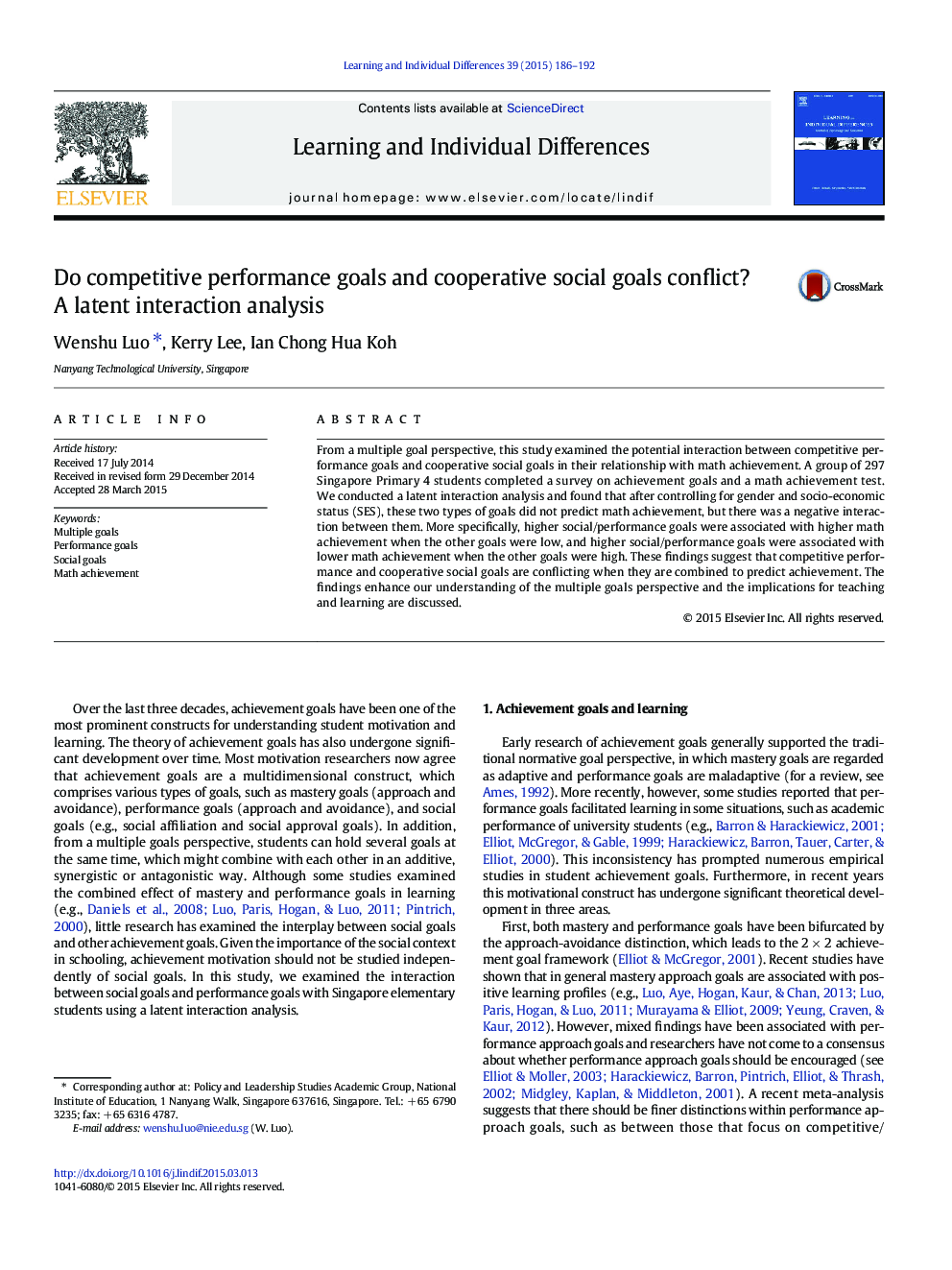| Article ID | Journal | Published Year | Pages | File Type |
|---|---|---|---|---|
| 364556 | Learning and Individual Differences | 2015 | 7 Pages |
From a multiple goal perspective, this study examined the potential interaction between competitive performance goals and cooperative social goals in their relationship with math achievement. A group of 297 Singapore Primary 4 students completed a survey on achievement goals and a math achievement test. We conducted a latent interaction analysis and found that after controlling for gender and socio-economic status (SES), these two types of goals did not predict math achievement, but there was a negative interaction between them. More specifically, higher social/performance goals were associated with higher math achievement when the other goals were low, and higher social/performance goals were associated with lower math achievement when the other goals were high. These findings suggest that competitive performance and cooperative social goals are conflicting when they are combined to predict achievement. The findings enhance our understanding of the multiple goals perspective and the implications for teaching and learning are discussed.
